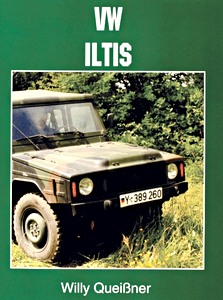Kfz. 1, 2, 3 & 4 : Light Off-Road Passenger Cars (Camera On)
"The leichter geländegängiger Personenkraftwagen, or l.gl. Einheits-Pkw - light off-road passenger cars - were manufactured by Stoewer, Hanomag and BMW from 1936 to early 1944. The superstructures were delivered by ten different companies and were identical from each manufacturer.
Early versions had both 4-wheel drive and steering which later was dropped to just 4 wheel drive and front wheel steering. These off road cars were used by the German Army in four distinct versions with the designations Kfz. 1, Kfz. 2, Kfz. 3 and Kfz. 4.
This new photo-album in the "Camera On" series contains over 120 photos of these vehicles during WWII.
Detalle del libro
| Autor: | Alan Ranger |
|---|---|
| Presentación: | 80 páginas, 29.5 x 21 cm, tapa blanda |
| Ilustración: | 120 fotos en b/n |
| Idioma: | Inglés |
| Editorial: | MMP Books (PL, 2018) |
| Colección: | Camera On (10) |
| ISBN: | 9788365281876 |

Kfz. 1, 2, 3 & 4 : Light Off-Road Passenger Cars
Idioma: Inglés
Ver precio, disponibilidad y valoraciones en Amazon
Comprar en Amazon ESComprar en Amazon.com


